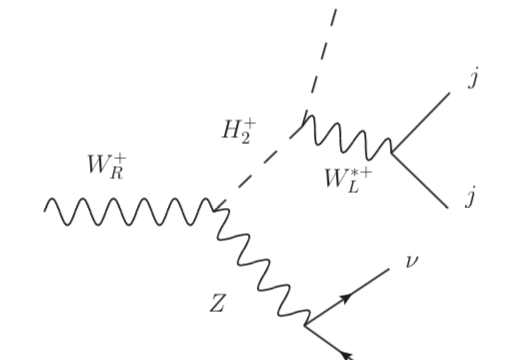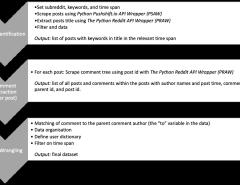Authors: Mariana Frank, Chayan Majumdar, Poulose Poulose, Supriya Senapati, Urjit A. Yajnik
Published on: February 06, 2024
Impact Score: 8.3
Arxiv code: Arxiv:2402.04192
Summary
- What is new: This research demonstrates how charged $W_R$ bosons, as proposed in alternative left-right models, might be discovered at the LHC collider under conditions that were previously considered unlikely, thanks to their lighter possible mass and unique decay signatures compared to traditional left-right models.
- Why this is important: Previous models suggested that detecting charged $W_R$ bosons at the LHC collider was challenging due to their heavy mass and the collider’s detection capabilities.
- What the research proposes: By investigating the unique signatures of $W_R$ boson decays and their production patterns, including pair production or in combination with a light charged Higgs boson, the study proposes methods to detect these particles at lower energies and luminosities than previously thought.
- Results: The analysis shows that $W_R$ bosons could be observable at the LHC at 27 TeV, and possibly even at 13 TeV under the most favorable conditions, expanding our understanding of particle physics and the universe’s fundamental forces.
Technical Details
Technological frameworks used: The research utilizes the framework of $E_6$ grand unification to explore alternative left-right models and employs sophisticated collider data analysis techniques.
Models used: Models exploring the production and decay of $W_R$ bosons in various scenarios were developed, with a focus on leptons or jets as final decay products.
Data used: Collider data constraints were incorporated to refine model predictions and identify feasible signals of $W_R$ boson presence.
Potential Impact
This research could benefit companies and sectors involved in collider technology, particle detection equipment, and theoretical physics research, potentially disrupting traditional physics research methodologies and opening new avenues in particle physics and cosmology.
Want to implement this idea in a business?
We have generated a startup concept here: Quantum Collider Analytics.



Leave a Reply